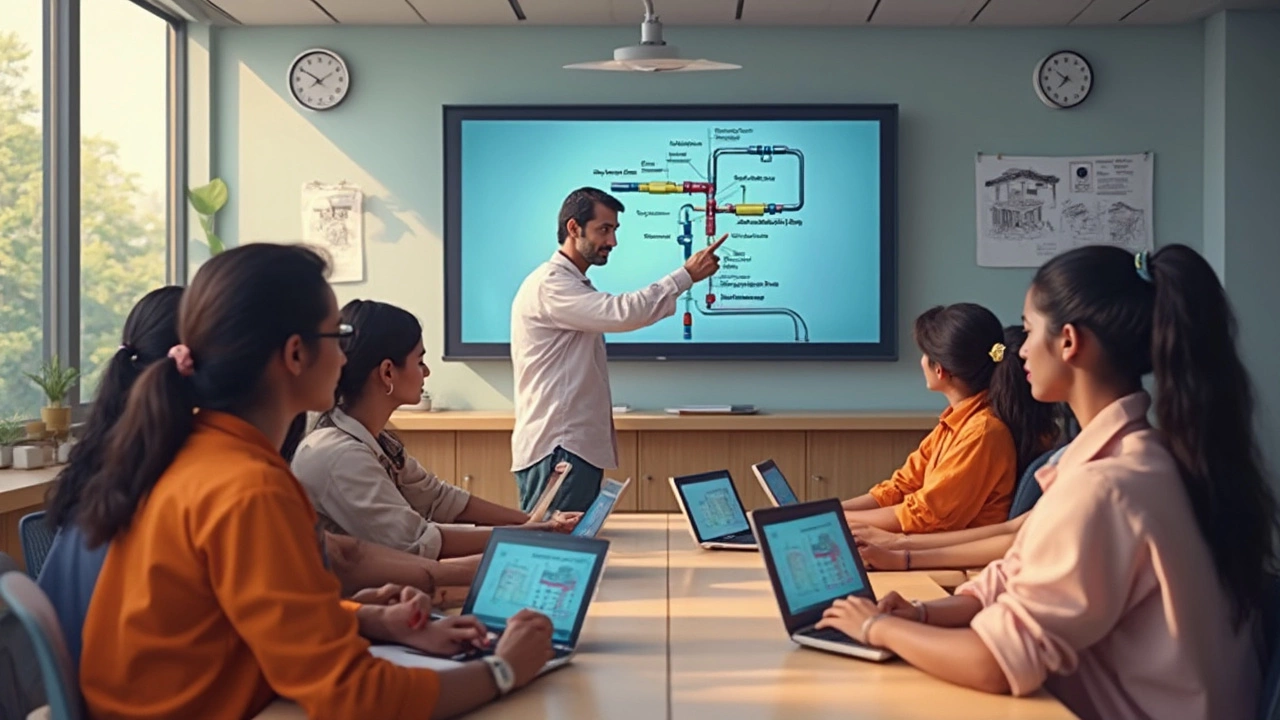Plumbing Skills You Need to Succeed
If you’re thinking about a plumbing job, the first step is to know what skills actually matter on the job site. You don’t need a fancy degree, just a solid set of hands‑on abilities and the right mindset. Below we break down the basics, show how to practice them, and point you to the best training options.
Core Skills Every Plumber Should Master
Reading blueprints might sound like an engineer’s job, but plumbers use them daily to locate pipes, valves, and connections. Spend a few minutes each week sketching a simple floor plan and marking where water lines run. That habit makes real‑world jobs feel less confusing.
Cutting and threading pipe is another must‑know. Start with copper and PVC on a spare piece of pipe. Practice the torque on a wrench until it feels natural. When the joint leaks, you know you missed a step – that’s how you learn.
Understanding water pressure and flow is a hidden gem. A quick test with a pressure gauge on a faucet tells you if a system is balanced. Knowing the numbers helps you diagnose problems faster than guessing.
Safety isn’t optional. Learn to turn off the main valve, wear proper gloves, and use a respirator when soldering. A small safety slip can turn a day’s work into a medical bill.
Finally, communication matters. Clients appreciate clear explanations about what’s broken and how you’ll fix it. Practice a short, jargon‑free summary after each job – it builds trust and can lead to repeat business.
Choosing the Right Plumbing Training
There are three main paths: apprenticeships, vocational courses, and online certifications. An apprenticeship pairs you with an experienced plumber, letting you earn while you learn. Look for programs that offer a minimum of 2,000 hours of on‑site work.
If you prefer a classroom setting, many community colleges run short‑term plumbing courses. They cover pipe sizing, code basics, and basic tool use. Check that the curriculum aligns with local building codes – that’s what employers will test you on.
Online options work for busy people. Look for courses that include video demos and a way to submit videos of your own work for feedback. The best ones also provide a final exam that can be used to claim a certification badge.
When comparing programs, ask these questions: Does the school have industry partnerships? Are graduates placed in real jobs? How much hands‑on time do they guarantee? A program that answers yes to most of these is worth the tuition.
Don’t forget to keep a record of every pipe you cut, every joint you solder, and every code you study. A simple spreadsheet can become your personal portfolio when you apply for a job.
With the right mix of practical skill and targeted training, you’ll move from a beginner to a confident plumber faster than you think. Start small, stay consistent, and let each completed job be a stepping stone toward a solid career.

Looking at tech courses for plumbers but don't know what's easy to start with? This guide breaks down the simplest entry point for beginners, what to expect, and tips to help you pass. You'll learn why plumbing tech courses are less intimidating than they sound, what skills will help you, and how to choose the right program for your goals. If you want to launch a trade career with smart course choices, this is for you.
Continue Reading

Ever wondered if it's possible to become a plumber without formal training? This article explores the feasibility of teaching yourself plumbing skills. It provides practical tips, shares real-life experiences, and dispels common myths. By the end, you'll know if this DIY approach suits you or if enrolling in a course is the better option.
Continue Reading






